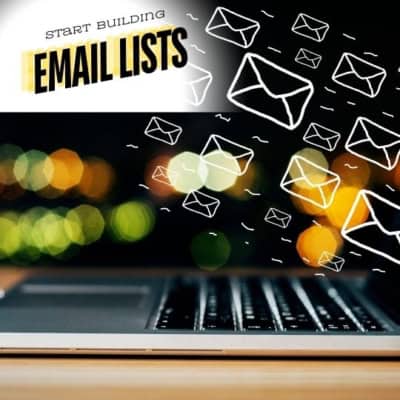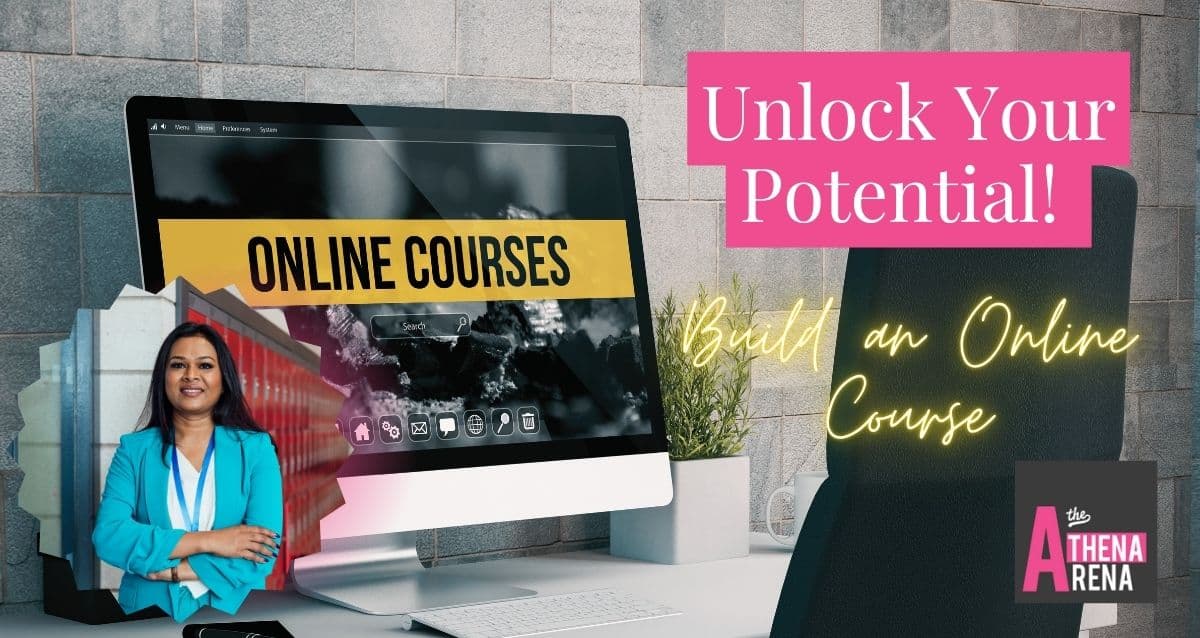Introduction: The Importance of Personal Branding for Life Coaches
Definition of Personal Branding
P ersonal branding is the process of creating a unique image and voice for yourself in the minds of your target audience. It’s about defining who you are, what you stand for, and the value you provide. Personal branding is how you present yourself to the world and consistently communicate your qualities, values, and unique attributes.
Why Personal Branding Matters in the Life-Coaching Industry
The life coaching industry is highly competitive, with countless professionals offering similar services. Effective personal branding helps you stand out from the crowd by showcasing what makes you unique. It builds trust and credibility, allowing potential clients to see the real you and understand how you can help them achieve their goals. In an industry where trust and personal connection are paramount, a strong personal brand can be the key to attracting and retaining clients.
Overview of the 10 Tips to Follow
To guide you on your journey of building a solid personal brand, we’ve outlined 10 essential tips:
- Define Your Unique Value Proposition: Identify your strengths and expertise to determine what sets you apart. Craft a clear and compelling message that resonates with your audience.
- Develop a Consistent Brand Identity: Create a memorable logo and visual elements, choose cohesive color schemes and typography, and ensure consistency across all platforms.
- Establish Your Online Presence: Build a professional website, optimize social media profiles, and consider starting a blog or podcast to reach a wider audience.
- Share Valuable Content Regularly: Develop a content strategy aligned with your expertise, and use various formats like text, video, and audio to share helpful tips, insights, and resources.
- Engage with Your Target Audience: Understand your ideal clients, participate in relevant online communities, and promptly respond to comments and messages.
- Showcase Client Success Stories: Collect testimonials, create case studies (Kit, formerly known as ConvertKit has great examples of case studies) , and use storytelling to demonstrate your impact and build credibility.
- Network and Collaborate with Other Professionals: Attend industry events, seek opportunities for guest blogging, and collaborate on joint projects or webinars. Learn all about Masterful Networking here.
- Invest in Continuous Learning and Growth: Stay updated on industry trends, pursue certifications or advanced training, and share your learning journey with your audience. Discover all the valuable continuing education CEC courses at our partner’s site: Positive Psychology here.
- Leverage Email Marketing: Build an email list, create valuable newsletters, and use email to nurture relationships and promote your services. Checkout my blog post about my favorite email marketing service provider for coaches and creators here.
- Monitor and Adjust Your Brand Strategy: Regularly assess your brand’s performance, gather feedback, and make data-driven adjustments to improve your brand.
Building a personal brand is crucial for life coaches who want to establish themselves in the industry, attract the right clients, and make a lasting impact. Now that we’ve set the stage, let’s dive into the first tip: defining your unique value proposition.

 5 P’s—Personal, Pointed, Purposeful, Prioritized, and Professional—serve as foundational elements that guide you in crafting a brand that resonates with your audience.
5 P’s—Personal, Pointed, Purposeful, Prioritized, and Professional—serve as foundational elements that guide you in crafting a brand that resonates with your audience.
Personal branding strategies begin with being Personal, which means ensuring that your brand authentically reflects who you are. This involves sharing your true self, including your values, beliefs, and experiences, to create a genuine connection with your audience. Being Pointed is about having a focused and specific message that clearly communicates what you offer and how it benefits your clients. This focus helps differentiate you from other life coaches and makes your brand memorable.
Purposeful branding involves aligning your brand with a clear purpose or mission. This gives your brand direction and meaning, helping you connect with clients who share similar values and goals. Prioritized branding requires you to prioritize your efforts and resources on the most impactful strategies and platforms, ensuring that your brand remains consistent and effective across all touchpoints.
Lastly, maintaining a Professional image is crucial for establishing credibility and trust. This includes presenting yourself and your brand in a polished and competent manner, whether through your website, social media profiles, or client interactions. By integrating these 5 P’s into your personal branding strategy, you can create a compelling and enduring brand that stands out in the competitive life coaching industry.
Build a magnetic personal brand that multiplies your income, impact, and influence
Join Mind Valley’s Gerard Adams in an 18-day program that unmasks the real you and transforms your business or career through the power of your unique personality and presence.

1. Define the Unique Value Proposition of Your Personal Brand
Identify Your Strengths and Expertise
The bedrock of your personal branding strategies lies in a clear understanding of your strengths and expertise. Start by making a list of your qualifications, experiences, and skills. Consider what you excel at in life coaching – career guidance, relationship advice, or personal development. Perhaps you have a unique background, such as a degree in psychology or experience working with specific communities. These elements form the foundation of what you offer your clients.
Determine What Sets You Apart from Other Life Coaches
Once you have a clear picture of your strengths, consider what differentiates you from other life coaches. Are there specific methods or techniques that you use that others might not? Maybe your approach is rooted in a particular philosophy or style. It could also be your personality—are you naturally empathetic, a great listener, or particularly good at motivating others? Highlighting these unique aspects will make you stand out in a crowded market.
Craft a Clear and Compelling Message
Now that you’ve identified your unique value proposition, it’s time to articulate it clearly and compellingly. Your message should resonate with your target audience and communicate who you are, what you do, and why they should choose you over others. Craft a concise statement, often called an elevator pitch, to encapsulate your brand. This message should be consistently reflected in all your communications, from your website bio to your social media profiles.
Building a strong foundation with your unique value proposition is just the start. Next, we’ll explore how to develop a consistent brand identity that ties all your personal branding efforts together seamlessly.
Suggested Reading: The Competitive Edge: Discover the Impact of a Business Differentiation Strategy on Your Success

A unique value proposition (UVP) in personal branding is a clear, compelling statement that defines what sets an individual apart from others in their field. It highlights the distinct benefits and unique qualities that they bring to their audience or clients, which cannot be easily replicated by competitors. The UVP serves as a cornerstone of personal branding, encapsulating one’s expertise, values, and the specific problem-solving capabilities they offer.
In the context of personal branding, a strong UVP helps to establish a definitive identity and positioning in the market. It communicates not just what the individual does, but why they do it and how they do it differently or better than others. For example, a life coach might emphasize their unique approach, such as integrating mindfulness techniques with career coaching to provide holistic development for their clients.
Ultimately, a UVP makes it easier for potential clients or employers to understand and remember the individual’s brand, fostering trust and making them the go-to choice for specific needs. It’s a blend of one’s unique skills, experiences, and passion, all tailored to meet the needs and expectations of their target audience.

2. Develop a Consistent Brand Identity
Creating a strong brand identity is crucial to standing out in the life coaching industry. Now that you’ve defined your unique value proposition, it’s time to translate that message into visual and textual elements. Here’s how to develop a consistent brand identity:
Create a Memorable Logo and Visual Elements
Your logo is the face of your brand. It’s essential that it’s memorable and aligns with the message you want to convey. Whether you hire a professional designer or use a logo-making tool, ensure your logo is unique and reflects your coaching style. Don’t forget about other visual elements like icons, graphics, and images that can be consistently used across your platforms.
Choose a Cohesive Color Scheme and Typography
Another vital step is selecting a cohesive color scheme and typography. Colors evoke emotions, so choose ones that resonate with your brand’s message and appeal to your target audience. Stick to one or two fonts for typography to maintain a clean and professional look. This consistency will make your brand instantly recognizable.
Ensure Consistency Across All Platforms
Consistency is key. Whether it’s your website, social media profiles, business cards, or marketing materials, ensure all elements align with your chosen brand identity. This includes using the same logo, colors, and fonts across all platforms and communications. Consistent branding builds trust and reinforces your message whenever someone interacts with your brand.
Developing a consistent brand identity sets a solid foundation for your life coaching business and helps create a lasting impression on your audience.
Learn how to make your brand unstoppable, so you attract customers and revenue with ease
Jeffrey Perlman is the Brand Architect behind Zumba and Mindvalley. In this program, he shows you how to build your own through a proven system that transcends conventional branding wisdom and transforms any brand into a game-changer

 The 4 C’s—Clarity, Consistency, Connection, and Confidence—serve as foundational pillars that guide you in crafting a brand that resonates with your audience.
The 4 C’s—Clarity, Consistency, Connection, and Confidence—serve as foundational pillars that guide you in crafting a brand that resonates with your audience.
Clarity is about having a clear understanding of who you are and what you stand for. It involves defining your unique value proposition and ensuring that your messaging aligns with your core values and goals. This clarity helps potential clients quickly grasp what makes you different from other life coaches.
Consistency is crucial in maintaining a cohesive brand image across all platforms. Whether it’s your website, social media profiles, or marketing materials, consistency in your visual elements, tone, and messaging builds trust and recognition among your audience. It ensures that every interaction reinforces your brand identity.
Connection focuses on building meaningful relationships with your audience. By engaging authentically and empathetically, you create a sense of community and loyalty. This connection not only attracts new clients but also fosters long-term relationships with existing ones, enhancing your brand’s reputation and reach.
Confidence is the final pillar, emphasizing the importance of self-assurance in your branding efforts. Confidence in your skills and offerings translates into a compelling brand presence that inspires trust and credibility. It encourages potential clients to choose you as their life coach, knowing that you have the expertise and conviction to guide them effectively.
By integrating these 4 C’s into your personal branding strategy, you can create a compelling and enduring brand that stands out in the competitive life coaching industry.

4. Share Valuable Content Regularly
Creating and sharing valuable content not only establishes you as an expert in your field but also keeps your audience engaged. This chapter will guide you through developing a content strategy, creating diverse formats, and offering insights that align with your life coaching expertise.
Develop a Content Strategy
Your content strategy should be aligned with the unique value proposition you defined earlier. Focus on topics that resonate with your audience and highlight your strengths.
- Identify Core Themes: Pinpoint the primary topics where you can offer valuable insights—whether it’s stress management, career coaching, or personal growth.
- Create a Content Calendar: Plan your content in advance to ensure regular and timely posts. A mix of weekly and monthly posts can help maintain consistency. Check out SmarerQueue’s Awesome social media posting calendars.
- Set Goals: Identify what you aim to achieve with your content. Are you looking to drive more website traffic, gain more social media followers, or convert prospects into clients?
Create and Share Helpful Tips, Insights, and Resources
Sharing useful content can dramatically increase your credibility and attract your target audience.
- Helpful Tips: Provide actionable advice that your audience can implement immediately. Quick wins can make your content highly shareable.
- Insights: Offer deeper perspectives on your areas of expertise. Include data, research findings, and personal experiences to add authority to your posts.
- Resources: Curate or create valuable resources like downloadable guides, worksheets, or eBooks. These can be used as lead magnets to grow your email list.
Use Various Content Formats
Diversifying your content formats keeps your audience engaged and caters to different preferences.
- Text: Write blogs, articles, and social media posts. Optimize these for SEO to increase discoverability.
- Video: Produce videos ranging from short tips to full webinars and live sessions. Video content is highly engaging and can boost your online presence.
- Audio: Consider starting a podcast or participating in interviews. Audio content allows your audience to consume your insights while multitasking.
As you develop and share your content, remember to maintain consistency in your brand voice and message. Engaging with your audience through valuable content builds trust and positions you as an authority in the life coaching industry.
Suggested Reading: Discover How to Be a Standout Podcast Guest and Build Your Brand
Make Social Media Posting Easier with “Virtual Assistant”
Check out my favorite “Go-to” social media posting tools.
The Tools That Feels Like a Marketing Team: SmarterQueue and Tailwind. I use both!
Suggested Reading: SmarterQueue Reviews: Say Goodbye to Social Media Stress

5. Engage with Your Target Audience
Engaging with your target audience is crucial to growing your personal brand and building trust within the life coaching industry. Knowing who your ideal clients are and understanding their needs, preferences, and pain points can help you connect more effectively and provide tailored solutions that resonate with them.
Identify and Understand Your Ideal Clients
Before diving into engagement tactics, it’s vital to identify your ideal clients. Create detailed client personas that include demographic information, behavioral traits, and specific challenges they face. This helps you craft messages and content that speak directly to their needs.
- Demographics: Age, gender, occupation, education level.
- Psychographics: Values, interests, lifestyle.
- Pain Points: Key challenges, goals, and needs.
Participate in Relevant Online Communities and Forums
One of the best ways to engage with your audience is by joining online forums and communities where your ideal clients hang out. Platforms like Facebook Groups, LinkedIpsn communities, and industry-specific forums can be goldmines for building relationships and showcasing your expertise.
- Share insights: Offer helpful advice and tips.
- Answer questions: Be active in discussions to show your expertise.
- Network: Connect with other professionals and potential clients.
Respond to Comments and Messages Promptly
Engagement is a two-way street; being responsive to comments and messages from your audience shows that you are approachable and genuinely care about their concerns. It also helps nurture relationships and build a loyal following.
- Prompt Replies: Aim to respond to comments and messages within 24 hours.
- Be Authentic: Show genuine interest and empathy in your responses.
- Follow-Up: Make it a habit to follow up on ongoing discussions and queries.
Engaging effectively with your audience sets the stage for deeper connections and trust. This paves the way for showcasing your success stories and understanding the deeper transformations you facilitate, which is a key part of building your robust personal brand.

6. Showcase Client Success Stories
Collect and Share Testimonials from Satisfied Clients
Gathering testimonials from clients who have successfully achieved their goals with your help is a powerful way to establish your credibility. Start by asking clients who have seen significant results if they’d be willing to share a few words about their experience. Personal and genuine feedback reflects the real-world impact of your coaching.
Place these testimonials prominently on your website, particularly on your homepage, services page, or a dedicated testimonials page. Always get permission to use their names and photos, or anonymize the information if necessary to maintain client confidentiality.
Create Case Studies Highlighting Client Transformations
Go a step further by developing detailed case studies. These should outline the challenges your clients faced, your approach to coaching them, and the results they achieved. Use a structured format:
- Introduction: Briefly describe the client and their initial situation.
- Challenges: Outline the specific problems they were facing.
- Solution: Detail the coaching strategies and methods you employed.
- Results: Highlight the measurable outcomes and transformations.
Case studies not only provide deep insights into your coaching effectiveness but also serve as a narrative that potential clients can relate to.
Use Storytelling to Demonstrate Your Impact
People connect with stories. To make your client success stories even more compelling, leverage storytelling techniques. Start with a captivating opening that sets the stage for the client’s journey. Build tension by describing the challenges in detail, showing the emotional and practical struggles.
Next, describe the turning point where your coaching made a pivotal impact. Conclude with a satisfying resolution, demonstrating the client’s new success and the lasting changes in their life. By humanizing their experience, you make your potential clients envision themselves achieving similar success.
Sharing client success stories builds your credibility and inspires trust and engagement among your audience. Transitioning to consistently showcasing the benefits of your coaching will naturally pave the way to further boosting your brand.

7. Network and Collaborate with Other Professionals
Attend Industry Events and Conferences
One of the best ways to grow your life coaching business is by attending industry events and conferences. These gatherings offer unparalleled opportunities to meet like-minded professionals, learn from industry leaders, and stay updated on the latest trends. Whether it’s a local seminar or a national conference, the insights gained and connections made can be game-changers for your career.
Here’s why attending these events is crucial:
- Expand Your Knowledge: Conferences often feature keynote speakers and workshops that delve into advanced coaching techniques and emerging methodologies.
- Build Relationships: Face-to-face interactions foster genuine connections that online networking sometimes can’t match.
- Showcase Your Expertise: Participating in panel discussions or hosting workshops can position you as an expert in your field.
Seek Opportunities for Guest Blogging or Podcast Appearances
Guest blogging and appearing on podcasts are excellent ways to extend your reach and showcase your expertise to a broader audience. Look for popular blogs or podcasts within your niche that align with your values and target audience.
Here’s how to maximize these opportunities:
- Identify Relevant Platforms: Make a list of influential blogs and podcasts in the personal development and life coaching space.
- Pitch Unique Content: Develop pitches that highlight specific areas of your expertise, offering fresh insights and actionable advice.
- Promote Your Appearances: Share your guest posts and podcast episodes across your social media and website to drive engagement and attract new clients.
Collaborate on Joint Projects or Webinars
Collaborative projects and webinars can provide significant mutual benefits by pooling resources, expertise, and audiences. Partnering with another professional or brand can help you reach new people and offer more comprehensive solutions to your clients.
Steps for effective collaboration:
- Choose Complementary Partners: Look for partners whose expertise complements yours, creating a more well-rounded offering for your audience.
- Plan Strategically: Outline the goals, roles, and responsibilities for the project to ensure mutual benefit and streamlined execution.
- Promote Widely: Use both partners’ platforms for promotion to maximize visibility and impact.
By focusing on building strong, collaborative relationships with other professionals, you not only expand your network but also create opportunities for mutual growth and learning. As you engage in these collaborative efforts, remember to bring your unique value proposition to the fore, ensuring your personal brand remains distinct and recognizable.
Next, it’s essential to keep learning and growing in your profession—making sure you’re always providing the best for your clients.
Suggested Reading: How to Be a Standout Podcast Guest
A professional program for the person seeking a better network, stronger people skills, and an upper hand in work and in life.
Keith Ferrazzi is the world’s leading networking expert. Through the Mastering Authentic Networking program, you’ll be guided through his signature curriculum of networking training and tools—the same ones he uses in private high-end coaching sessions with elite leaders and policymakers, professionals, multinational companies, and even presidential candidates.
Become a Mindvalley Member and unlock access to Mastering Authentic Networking + Mindvalley’s complete curriculum of 100+ transformational programs for as low as $1 a day.

9. Leverage Email Marketing
Build an Email List of Interested Prospects
Building an email list is crucial because it provides a direct line of communication to potential clients. Start by offering something valuable in exchange for their email address. This could be a free e-book, a webinar, or an exclusive newsletter. Make sure to include sign-up forms on your website and social media profiles to capture their information efficiently.
Create Valuable Newsletters and Email Sequences
Once you have an email list, your next step is to provide value through regular newsletters and well-crafted email sequences. Your newsletters should be informative, offering insights and tips that can help your audience in their personal development journey. Email sequences, or automated emails sent in a series, can educate your audience about your services, share client success stories, or guide them through a challenge they’re facing.
Use Email to Nurture Relationships and Promote Services
Apart from providing valuable content, email marketing is a powerful tool to nurture relationships and subtly promote your services. Personalize your emails and segment your lists to cater to different needs and interests. Regularly remind your subscribers of how you can help them achieve their goals and improve their lives. Be sure to include clear calls-to-action, whether it’s booking a consultation or joining a program. This builds trust and keeps your audience engaged and invested in your offerings.
Staying engaged with your email list creates an ongoing conversation and offers a consistent touchpoint for your brand. This approach ensures you remain top-of-mind when they are ready to take the next step in their personal development journey.
By employing these email marketing strategies, you reinforce the connection between you and your prospects effectively positioning yourself as a valuable resource in their lives.
Inspirations & ConvertKit Reviews from Their Successful Tribe
I absolutely LOVE the true stories of creators making their dreams a reality and giving us their perspectives and reviews of ConvertKit.
ConvertKit has established itself as a powerful ally for diverse content creators. With a broad spectrum of users benefiting from its exhaustive resources, the platform has received copious positive feedback, reflected in “ConvertKit reviews” disseminated across various channels.
ConvertKit for Coaches:
Coaches, for example, consistently appreciate the ability to create automated email sequences with ConvertKit, which enables them to maintain consistent engagement with clients and prospects. This automated communication is critical for coaches who often juggle multiple clients and need to distribute content such as courses or weekly tips efficiently and personally without manual intervention.
Dan Go-Coach. Course Creator.
Words by Isa Adney
Photography by Danika Camba
How this creator pivoted and scaled his business after overcoming personal loss
Dan Go’s journey is filled with heartache and growth—both personal and professional. Learn how he uses ConvertKit and the Creator Network to run a successful fitness business.
[READ MORE]
Jessica Abel – Cartoonist + Author
Words by Isa Adney
Taking control of your creative life
After 30 years of working in her craft, cartoonist Jessica Abel realized she’d taken a grassroots marketing approach to build a full-time business
[READ MORE]

10. Monitor and Adjust Your Brand Strategy
Regularly Assess Your Brand’s Performance
Building a personal brand is not a set-it-and-forget-it task. It requires ongoing attention and fine-tuning. Regularly assess how your brand is performing by keeping an eye on key metrics. These can include website traffic, social media engagement, and client inquiries. Use tools like Google Analytics or social media insights to get a clear picture of what’s working and what isn’t.
Gather Feedback from Clients and Peers
Your clients and peers are invaluable sources of information. Solicit feedback from them to understand their perspectives on your brand. A simple email survey or a one-on-one conversation can yield deep insights. Pay close attention to recurring themes in their feedback—both the praise and the criticisms. This will help you spot areas where you excel and identify where improvements are needed.
Make Data-Driven Adjustments to Improve Your Brand
Once you have gathered and analyzed feedback, it’s time to make data-driven adjustments. If clients consistently praise your communication skills but mention that they wish you covered more specialized topics, think about expanding your content strategy. Adjusting elements like your messaging, content, and even your service offerings based on actual data ensures that your brand remains relevant and effective.
Fine-tuning your brand strategy is an ongoing process. By keeping a pulse on your performance and being receptive to feedback, you ensure that your personal brand continues to resonate and grow effectively.
Conclusion: Implementing Your Personal Branding Strategy
Recap the Importance of Personal Branding
Personal branding is crucial for life coaches aiming to distinguish themselves in a crowded industry. It’s about creating a unique identity, showcasing your strengths, and establishing trust and credibility with potential clients. Throughout this series, we’ve explored 10 actionable tips to elevate your brand, from defining your unique value proposition to leveraging email marketing.
Encourage Taking Action
Knowing what to do is one thing, but taking action sets successful life coaches apart.
Start small—whether that’s tweaking your social media profiles for consistency or crafting a compelling unique value proposition. Each step you take builds a stronger and more recognizable brand. Consistency and persistence are your best allies. Begin by implementing one or two tips each week and track your progress. Making incremental improvements ensures you’re always moving forward.
Emphasis on Consistency and Authenticity
Consistency is key in personal branding. Every interaction, piece of content, and visual element should align with your brand identity. This builds trust and recognition. But consistency isn’t enough; authenticity also matters. Clients are drawn to genuine, relatable life coaches who demonstrate real passion and commitment. Be yourself, share your journey, and let your true personality shine through.
Building a personal brand is a continuous journey, not a destination. Keep refining, adjusting, and growing, ensuring your brand remains relevant and authentic.
Essential Tools and Resources
Recommend Tools for Online Marketing Entrepreneurs & Small Businesses:
- Access My Personal Branding Starter Kit
- 7 Creative and Compelling Business Differentiators to Attract Customers
- The Ultimate Guide to Lead Generation
- Discover the Top 25 Proven-to-Convert Lead Magnet Ideas.
Suggested Reading:
- The Competitive Edge: Discovering the Impact of a Business Differentiation Strategy on Success
- What is a Brand Strategist?: Job Role and Responsibilities
- Branding 101: Everything You Should Know About Building Your Brand
- Discover 5 Steps to a Winning Content Marketing Strategy
- Advisor vs Consultant: Who Drives the Most Business Growth?
- How to Be a Standout Podcast Guest & Build Your Brand
Discover more from The Athena Arena with Liz Gracia
Subscribe to get the latest posts sent to your email.














Leave a Reply